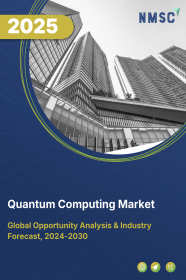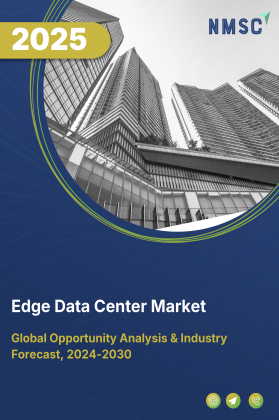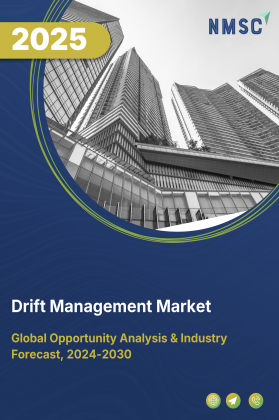
Quantum Computing Market by Component (Hardware, Software, and Service), by Deployment (On-Premises / Dedicated Systems, Cloud-Based Access (QaaS), and Hybrid Deployment Models), by Application (Optimization, Simulation & Modelling, Machine Learning & AI, and Others), by Technology (Superconducting Qubits, Trapped Ion Qubits, and Others), and by End‑User Industry (BFSI, Pharmaceuticals & Biotechnology, and Others) – Global Opportunity Analysis and Industry Forecast 2023-2030
Market Definition
The global Quantum Computing Market size was valued at USD 0.85 billion in 2022 and is predicted to reach USD 6.68 billion by 2030 with a CAGR of 29.9% from 2023-2030. Quantum computing is a form of computing that utilizes the principles of quantum mechanics to solve complex problems. It is a form of computing that uses quantum bits (qubits) instead of classical bits to store and process data. It has the potential to completely transform the way computers work and process information, enabling faster and more powerful computations than ever before.
Quantum computing has the potential to revolutionize various fields, including cryptography, optimization, drug discovery, material science, and simulation. It offers the promise of solving complex problems that are currently intractable for classical computers, such as large-scale optimization, factorization of large numbers, and simulating quantum systems.
Market Dynamics and Trends
The demand for quantum computing is increasing due to the growing need for high-speed computing as organizations look for faster and more efficient ways to process data. The potential applications of quantum computing span various industries, including healthcare, finance, logistics, and cryptography, where the need for high-speed computing is paramount. As organizations strive to accelerate their data processing capabilities and gain a competitive edge, the demand for quantum computing continues to grow.
Moreover, governments around the world are investing in quantum computing research to support their research institutes in the expansion of quantum computing technology, which is further boosting the quantum computing market growth. For instance, in November 2022, Germany's Ministry of Economic Affairs and Climate Action (BMWK) collaborated with software company QMWare and cloud specialist IONOS, together with the University of Stuttgart and the Fraunhofer FOKUS research institute, to build a platform for quantum computing applications for German industry.
Also, in January 2020, the Russian Government announced an investment of USD 790 million for the development of practical quantum computing technologies to set up a new National Quantum Laboratory to incorporate international best practices and resources. Furthermore, the increasing complexity of the financial sector along with the rise in the number of large datasets and to improve their risk analysis and forecasting capabilities, is fuelling the growth of quantum computing market.
However, the lack of skilled professionals along with complexity of quantum mechanics and high investment cost in infrastructure may restrain the quantum computing market growth. On the other hand, the rising digitalization followed by the developments in cryptocurrency and blockchain are the factors expected to create ample growth opportunities for global market in the future.
Market Segmentation and Scope of Study
The global quantum computing market report is segmented on the basis of component, deployment, application, technology, end-user, and region. Based on component, the market is classified into hardware, software, and service Based on the deployment, the market is segmented into on-premises and cloud-based. On the basis of application, the market is categorized into optimization, simulation and data problems, sampling, and machine learning. On the basis of technology, the market is divided into quantum dots, trapped ions, and quantum annealing. Based on end-user, the market is divided into BFSI, aerospace & defense, manufacturing, healthcare, IT & telecom, and energy & utilities. Geographical breakdown and analysis of each of the aforesaid classifications include regions comprising of North America, Europe, Asia-Pacific, and RoW.
Geographical Analysis
North America dominates the global quantum computing market and is potently expected to remain dominant in the market throughout the forecast period. This is attributed to the growing investment and support for the development of quantum computing by regional governments. For instance, in December 2022, the U.S. Senate approved a bipartisan legislative bill to strengthen national security by preparing the federal government’s defenses against quantum computing-based data breaches.
Also, in May 2022, the United States announced two presidential directives advancing quantum technologies to promote breakthroughs in cutting-edge science and technology. Moreover, the presence of major market players such as Google LLC, IBM Corporation and IonQ Inc. that are adopting strategies including collaboration is further accelerating the growth of quantum computing in the region.
For instance, in January 2021, Google Quantum AI (Google) collaborated with Boehringer Ingelheim, for researching and developing cutting-edge applications for quantum computing in pharmaceutical research and development (R&D), specifically molecular dynamics simulations. Also, in January 2020, IBM Corporation partnered with Daimler AG, to develop lithium-sulfur (Li-S) batteries, which are more powerful, long-lasting, and cost-effective than lithium-ion batteries by using a quantum computer.
On the other hand, Europe shows substantial growth in the quantum computing market owing to the growing adoption of cloud computing in various enterprises. According to Eurostat report, in 2021, 42% of EU enterprises used cloud computing, which is a 6 % increase since 2020. Also, the ongoing research and development on quantum computing in the region is further expected to accelerate the growth of the market. For instance, in January 2021, University of Glasgow partnered with Oxford Instruments NanoScience on Quantum Computing. Under the partnership, the Glasgow University used Oxford Instruments' next-generation Cryofree refrigerator, Proteox, as part of its research to accelerate quantum computing commercialization in the UK.
Competitive Landscape
The quantum computing industry includes several market players such as IBM Quantum, Google Quantum AI, Microsoft (Azure Quantum), Amazon Web Services (AWS Braket), Zapata Computing, SpinQ, Oxford Quantum Circuits (OQC), QC Ware, Quantinuum, D-Wave Systems, IonQ, Rigetti Computing, PsiQuantum, Xanadu, QuiX Quantum, Atom Computing, Pasqal, QuEra Computing, Quantum Brilliance, IQM Quantum Computers. These market players are adopting various strategies such as product launches and collaboration to maintain their dominance in the global market.
For instance, in June 2025, IBM Quantum announced a roadmap to build a fault-tolerant quantum computer named Starling, targeting ~200 logical qubits and 100 million gate operations by 2029.
Moreover, in July 2025, IonQ Completed the acquisition of Capella Space to begin building a space-based quantum key distribution (QKD) network.
Key Benefits
-
The report provides quantitative analysis and estimations of the quantum computing market from 2023 to 2030, which assists in identifying the prevailing market opportunities.
-
The study comprises a deep-dive analysis of the quantum computing market including the current and future trends to depict prevalent investment pockets in the market.
-
Information related to key drivers, restraints, and opportunities and their impact on the quantum computing market is provided in the report.
-
Competitive analysis of the players, along with their market share is provided in the report.
-
SWOT analysis and Porters Five Forces model is elaborated in the study.
-
Value chain analysis in the market study provides a clear picture of roles of stakeholders.
Quantum Computing Market Key Segments
By Offering
-
Hardware
-
Quantum processors
-
Cryogenics & control electronics
-
-
Software & Tools
-
Application software
-
Dev‑tools & middleware
-
-
Services
-
Consulting & integration
-
Training & support
-
Managed Services/QaaS Operations
-
By Deployment
-
On-Premises / Dedicated Systems
-
Cloud-Based Access (QaaS)
-
Hybrid Deployment Models
By Application
-
Optimization
-
Simulation & Modelling
-
Machine Learning & AI
-
Cryptography & Security
-
Sampling & Monte Carlo
-
Other Applications
By Technology
-
Superconducting Qubits
-
Trapped Ion Qubits
-
Photonic Qubits / Networks
-
Quantum Annealing
-
Neutral Atoms
-
Other / Emerging Qubit Types
By End‑User Industry
-
BFSI
-
Pharmaceuticals & Biotechnology
-
Energy & Utilities
-
Chemicals & Advanced Materials
-
Automotive & Aerospace
-
Logistics & Supply Chain Management
-
Government & Defense
-
Technology & Telecommunications
-
Academia & Research Institutes
-
Other end‑users
By Region
-
North America
-
U.S
-
Canada
-
Mexico
-
-
Europe
-
UK
-
Germany
-
France
-
Italy
-
Spain
-
Denmark
-
Netherlands
-
Finland
-
Sweden
-
Norway
-
Russia
-
Rest of Europe
-
-
Asia-Pacific
-
China
-
Japan
-
India
-
South Korea
-
Australia
-
Indonesia
-
Singapore
-
Taiwan
-
Thailand
-
Rest of Asia-Pacific
-
-
RoW
-
Latin America
-
Middle East
-
Africa
-
Key Players
-
IBM Quantum
-
Google Quantum AI
-
Microsoft (Azure Quantum)
-
Amazon Web Services (AWS Braket)
-
Zapata Computing
-
SpinQ
-
Oxford Quantum Circuits (OQC)
-
QC Ware
-
Quantinuum
-
D-Wave Systems
-
IonQ
-
Rigetti Computing
-
PsiQuantum
-
Xanadu
-
QuiX Quantum
-
Atom Computing
-
Pasqal
-
QuEra Computing
-
Quantum Brilliance
-
IQM Quantum Computers
Report Scope and Segmentation:
|
Parameters |
Details |
|
Market Size in 2022 |
USD 0.85 Billion |
|
Revenue Forecast in 2030 |
USD 6.68 Billion |
|
Growth Rate |
CAGR of 29.9% from 2023 to 2030 |
|
Analysis Period |
2022–2030 |
|
Base Year Considered |
2022 |
|
Forecast Period |
2023–2030 |
|
Market Size Estimation |
Billion (USD) |
|
Growth Factors |
Growing need for high-speed computing as organizations look for faster and more efficient ways to process data. Governments around the world are investing in quantum computing research. Increasing complexity of the financial sector along with the rise in the number of large datasets. |
|
Countries Covered |
28 |
|
Companies Profiled |
20 |
|
Market Share |
Available for 10 companies |
|
Customization Scope |
Free customization (equivalent to up to 80 working hours of analysts) after purchase. Addition or alteration to country, regional, and segment scope. |
|
Pricing and Purchase Options |
Avail customized purchase options to meet your exact research needs. |




















 Speak to Our Analyst
Speak to Our Analyst

























